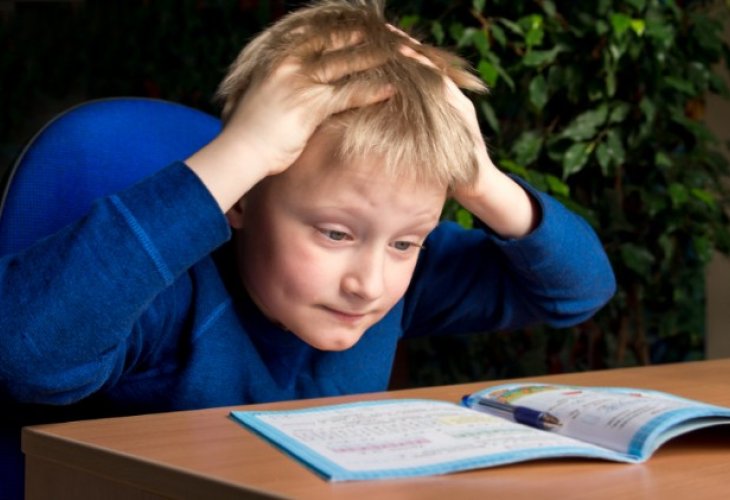Our Children Imitate Us, Not Our Words
Want more cooperation from your kids? Empower them and illuminate their unique abilities and talents. Positive words and plenty of compliments will do most of the work for you.
 (Photo: shutterstock)
(Photo: shutterstock)Hello Hagit. I have kids with ADHD, and they are driving me crazy... I no longer know how to deal with them. They drive me to the edge, and I end up screaming like a madwoman, feeling so guilty afterward. Do you really think it's possible to set boundaries for kids who seem to live in their own world, moving constantly, and are triggered by everything? I would love your quick response because I am truly losing my mind.
* * *
Answer:
Hello, dear woman. I see your question and understand that the situation you are dealing with is neither simple nor pleasant for you and your family. I believe that handling the multifaceted challenges of ADHD in both adults and children is one of the most discussed issues today.
Naturally, there are many factors that can trigger or amplify the phenomenon, such as genetic potential, poor nutrition, parental conflicts, unusual social situations, untreated learning difficulties, and more...
Let me address your question about setting boundaries.
Before examining the child's condition, we must reflect on the state of the home. Is the child growing up in a relatively stable environment, or does the home resemble a "volcano" ready to erupt from every direction? We must remember that our role as parents is to set an example for our children, who learn how to behave from us.
Countless times, I see parents who haven't resolved their issues with themselves, unintentionally passing their behavior patterns onto their children. This concept can be understood through a brief look at the "mirror theory" of the holy Baal Shem Tov.
In this context, I often use an example where we, as parents, shout at our kids: "Stop yelling!!!" with fire in our eyes and faces flushed like the sun that just emerged. Do we really think our kids will quiet down? Well, they won't. And if they do, it will be only out of temporary fright.
Our children don't hear our words; they imitate our behavior, and this is a point we must internalize.
The pressing question following my previous remarks is: Do we, as parents, know how to set boundaries for ourselves? If the answer is no, then it's time to work on that more diligently, because the child merely reflects the manner in which we, the supposed responsible and mature figures, act out.
The second point to consider – when we ask our children to "quiet their engines," is it from a place of their pure education, or is it driven by our desire for immediate and selfish silence? From my observation and experience in counseling numerous families, parents genuine with themselves often choose the latter option from the depths of their hearts.
Indeed, everyone understands the source of the communication directed at them. As our sages said, "Words that come from the heart – enter the heart." True education comes from a wise and appropriate reflection on each child's soul as an individual, empowering and nurturing it according to age and ability limits. It requires us, the parents, to do a lot of homework in child-rearing and to stop functioning arbitrarily in raising the next generation.
Additionally, our children want us to treat them with respect, just as we ourselves desire respect. So the question every parent should ask is: "Am I speaking to my child the way I would like to be spoken to?"
In conclusion, let's take several points into account:
1. For children with ADHD, it is much easier to handle the storm within when their home serves as a stable and calm base as much as possible. Of course, everything is relative. A healthy home is vibrant with parents striving to work on themselves. There is no parent who does everything perfectly – there is a parent who does their best!
2. A parent who knows how to set personal boundaries and work on their impulsive urges will find it easier to do so with their children.
3. Our children see us as role models – so instead of yelling at them to stop yelling, we should learn to speak to them from a place of confidence and authority.
 (Photo: shutterstock)
(Photo: shutterstock)4. Children with ADHD are especially creative – identify their strengths and nurture them.
5. Our children want us to speak to them with respect – pay attention to what you say. Hurtful and offensive words often bring about great emotional turmoil, putting the entire household in chaos.
6. Want more cooperation from your kids? Empower them and illuminate their unique abilities and talents. Positive words and plenty of compliments will do most of the work for you.
7. Finally, each time your child does something that makes you "explode," take a deep breath as many times as possible and remember that every explosion has collateral damage that can be avoided in that moment. If we work on ourselves to stop acting in anger, our children will learn that they too can stop themselves whenever they choose.
Good luck!
Hagit Amayev is a family consultant and psychotherapist. For details – visit the "B'Shnaim and More" website or email bshnaeem@gmail.com

